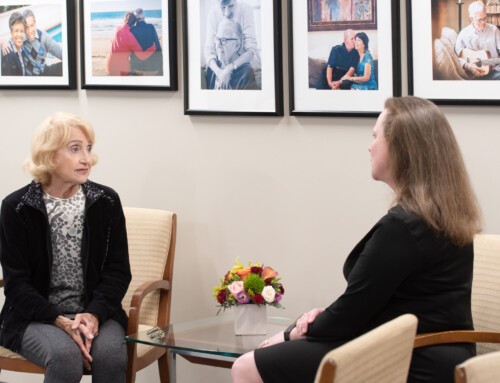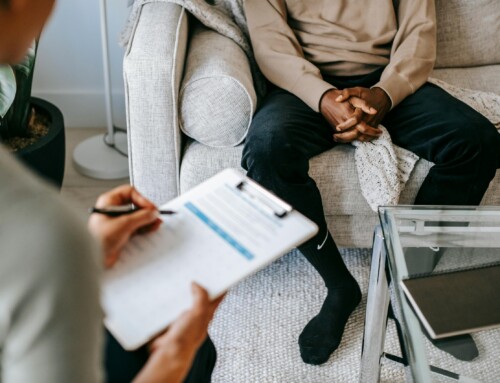Today we gather together in a myriad of ways: by phone, video, sometimes in person, but more so by memories of shared togetherness. The choice to reminisce and fall into nostalgia is a gift to be sure – you can feel love within that moment even if it has been decades or just prior to COVID-19. Funny how we reminisce and remember all the “last-times” these days…the last time we got to see our loved ones, the last time we took a plane, or just the last time we gave a hug or saw a smile, or teeth! 😊
In today’s world, we understand in new ways what an embrace means, or a chance to hold one another. We understand what beauty exists in seeing someone smile spontaneously from a joke or their laugh. We are aching to be and feel connected currently, perhaps more than ever. I always remember hearing in school that babies need touch and embrace to thrive and develop with healthy coping and attachment for their future. I wonder too how this time, for all of us, has made an impression upon us in ways we are yet to discover.
Need support? Our Clinical Care Coaches are here to help >>
For someone caring for a person with memory loss, each year comes with emotional markers. Holidays and birthdays, anniversaries and milestones, these are full of memories of what once was. It goes like this: “Two Christmases ago she could remember who our grandchildren were” and now, “This year she is having difficulty with anxiety and is feeling overwhelmed with all the people in the house.” But then just when it is hard, and full of grief, there can be a moment of normalcy shining through – perhaps a familiar smile flashing across their face after a hug from a little one. And just like that, a mental snap-shot is taken, a memory to reminisce about later, when it is different or perhaps harder to cope.
Valentine’s Day is the next milestone coming up. It can be experienced differently for everyone – we all have bad and good stories about this occasion. For better or for worse, it is a day used to reflect on love that is given, kindness, caring, concern, sympathy, and loyalty to someone in your life. I am sure that love grows and changes as one cares for someone with memory loss. I hear often that it becomes more like a parent-child relationship among spouses, and a generative cycle among adult children caring for parents. It is a love that has shifted from its original origin, it is textured, it is alive…yet altered. It is most certainly more complicated and taxing in certain aspects, but it is a load that many bear proudly for all kinds of reasons.
I have heard: “My husband did everything to take care of me and our family our whole lives, now it is my turn.” I have heard: “My mom is my best friend. I hate she doesn’t remember me anymore, but I would never give up being there for her.” I hear of new beginnings – how children who had not-so-good relationships with parents are now finding beautiful ways to connect, and second chances at having moments of love they never thought they would ever have. Relationships are complicated, aren’t they? Which means love is, too.
RELATED | Notes from a Social Worker: Love, intimacy & dementia >>
The problem with Valentine’s Day is there is not a recognition of the turmoil that exists in celebrating this love, the strife and struggle, and the ups and downs. Moments of I don’t know if I can keep doing this? or I just want to know when this is going to be over…these are also moments of love. Not wanting someone to suffer or exist in a life that is not worthy of their greatness, that is love, too. For those who feel ashamed or guilty for having such thoughts about a loved one, please know your love is strong even with those thoughts.
As a social worker at Alzheimer’s San Diego, I am privy to the most complex, yet pure and simple love stories every day. I am a holder of so many stories told to me over the years, I wish I could remember them all. They have traveled through my ears and into my heart, and therefore into my way of operating day to day, and I feel their magnitude and power. When a care partner is experiencing a broken-hearted loss to dementia, their person not remembering them, or a new change in their ability, I remember this, too. I might not be able to remember all the specifics over the years, but I can still feel that emotion…just like those with dementia. The person with memory loss may have few words left, they may not be able to recognize the planning and work you as the care partner are doing day in and day out, but they do feel it, they know it like something that can not be named. Your love and care, your connection and concern, your dedication and struggle are not for nothing.
If there was one thing I could give to every care partner this year, it wouldn’t be chocolate (although that’s still VERY good). It would be the smallest gesture from the person they’re caring for – maybe a whisper, or recognition through locking eyes – that yes, I see you, yes I love you, yes you mean everything to me, yes you matter to me, and thank you for taking care of me, for making that choice every single day especially on the days when I am more confused or having difficulty, thank you for all the moments no one ever sees that you do to do right by me. Even if that moment doesn’t happen on Valentine’s Day, I can promise you based off my years of experiencing love stories like this, whether its romantic or familial or based on friendship, that love is truly there.
Get compassionate support from a member of our Clinical Services team by calling Alzheimer’s San Diego at 858.492.4400. Clinical Care Coaches like Rebecca can help you learn about memory loss, develop caregiving strategies, and so much more.





